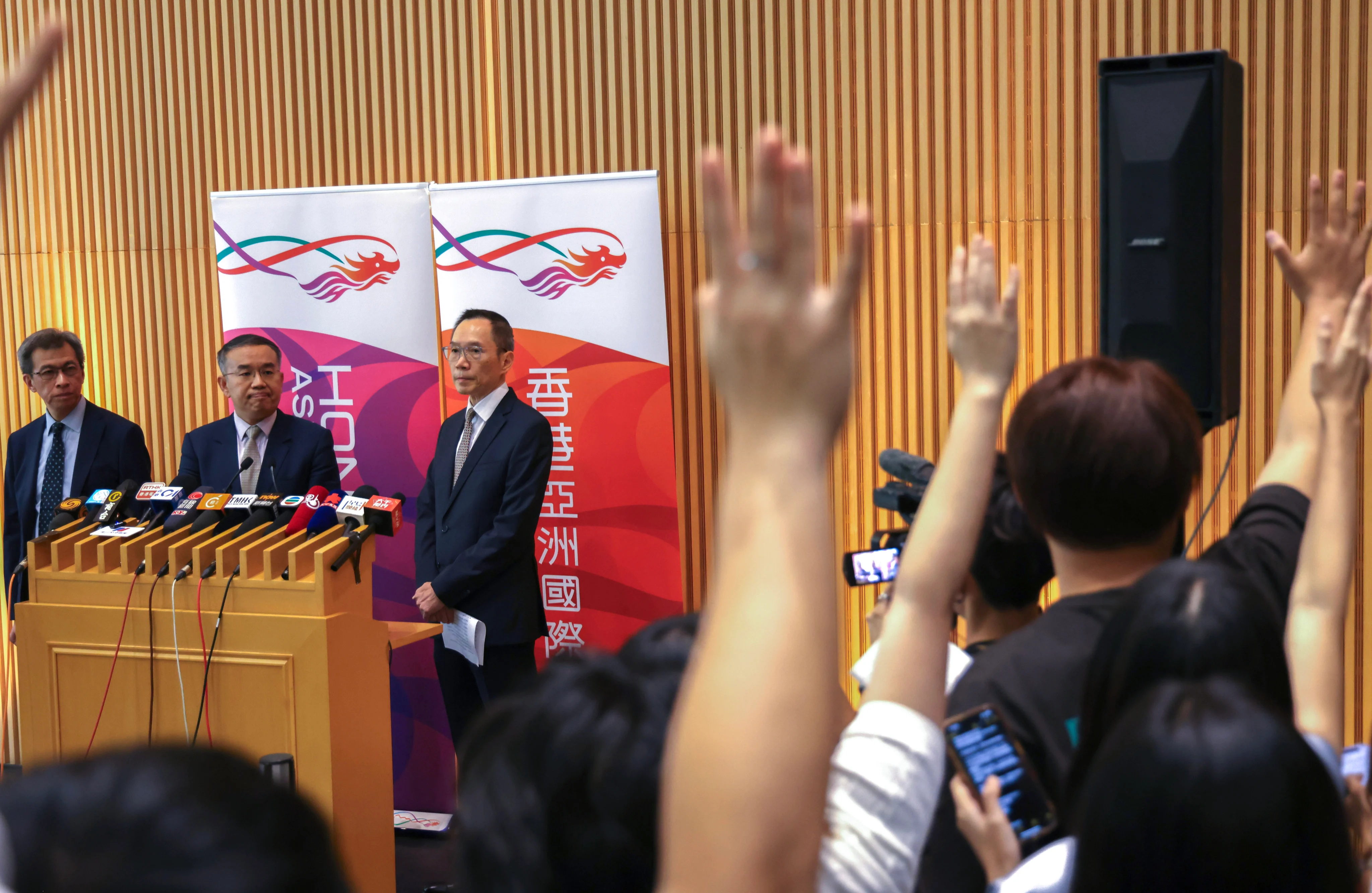By Jane Lee
Copyright scmp

Hong Kong’s bottled water procurement scandal has garnered widespread public attention. Beyond the immediate concerns over the process and contract management, it offers an opportunity to reflect more broadly on civil service culture. The episode should be viewed not only as a problem to resolve but also as an opportunity to promote attentiveness, ownership and flexibility in public administration.
The 2025 tender awarded contracts mainly based on the lowest bid. Requirements were described as “simple and clear”. This approach ensured consistency and apparent fairness, but left the system vulnerable to risks such as supplier misrepresentation and product safety issues. The process became a concern not because rules were missing, but because there was little room for thoughtful judgment.
Procedures are created as safeguards to help officials ensure fairness and avoid accusations of bias. But over time, a reliance on procedures might foster an environment where strict adherence to rules feels safer than exercising judgment.
If asked to buy water for their families, few officials are likely to opt for the cheapest, most obscure brand; they are likely to give much weight to quality and reliability. But in government procurement, the responsibility often feels less direct as it is shared across multiple approval stages. The link between individual decision-making and outcomes becomes weaker, along with the motivation to remain vigilant.
This tendency also influences broader practices. The long-standing “lowest price wins” convention, when applied across government and subsidised organisations alike, promotes minimal scrutiny. Officials might hesitate to reject the cheapest bid without clear justification, even when common sense advises caution. In highly competitive markets, some companies may submit unrealistically low bids, which can result in corners being cut. Hong Kong has faced similar problems, notably in public housing.
In the 1999 short-piling scandal in Sha Tin, two public housing blocks had to be demolished after contractors used piles that were up to 13m too short. The fraud resulted in criminal convictions and resignations, but also raised significant concerns about safety and quality, undermining public trust in housing safety.
Most civil servants are diligent and loyal. But their diligence often centres on fulfilling procedural requirements rather than identifying risks or aiming for the best outcomes. The bottled water case uncovered a culture that restricts accountability.
Now, Hong Kong officials are investigating complaints by lifeguards over new government-issued shoes after the union reported over 100 cases of discomfort and injuries linked to the cheaper brand. The Leisure and Cultural Services Department bought about 800 pairs last year, despite staff warnings that the shoes did not meet basic quality and standards.
The controversy, so soon after the bottled water contract dispute, has reignited concerns over government procurement practices and whether cost-cutting is being prioritised at the expense of quality and safety.
Reforms should address both the systems and the cultural mindset. Updating procurement rules is essential, but unless attitudes change, new rules risk becoming simply another checklist to follow. Cultural change ensures reforms are implemented with judgment and care.
One priority is to cultivate attentiveness. Civil servants must see vigilance as an essential part of their professional role. Training can be beneficial, but fostering habits of peer review and regular interdepartmental communication may be even more effective. Sharing lessons and challenges openly would strengthen attentiveness across the service.
Another aim should be to improve accountability through greater delegation. Responsibility should not be held solely at the top but shared more widely. Administrative and professional officers at middle levels perform much of the practical work, and giving them clearer ownership of outcomes encourages them to exercise care and take the initiative. Performance evaluations should emphasise not only compliance but also foresight, such as predicting risks and dealing with them before they become serious.
Finally, flexibility should be reintroduced where rules have become too strict. Giving user departments more authority over higher-value tenders could enhance efficiency and accountability, as these departments are best placed to understand their needs. The central tender board could then focus its expertise on the most important contracts and on upholding overall standards of fairness. Similarly, new safeguards would enable officers to apply common sense without compromising transparency.
The bottled water incident is more than a procurement mistake. Its deeper significance lies in reminding us that systems, no matter how well designed, only work when they are applied with attentiveness and ownership. Hong Kong does not lack skilled public servants; it just has to cultivate a culture that encourages initiative and sound judgment. A culture that actively reviews practices and makes changes is a system that truly remains accountable to taxpayers.
Approached in this manner, a difficult episode can promote growth. By encouraging attentiveness, enhancing responsibility and fostering greater flexibility, Hong Kong can develop a civil service that is both resilient and responsive – ready to serve the public in a rapidly changing society.



